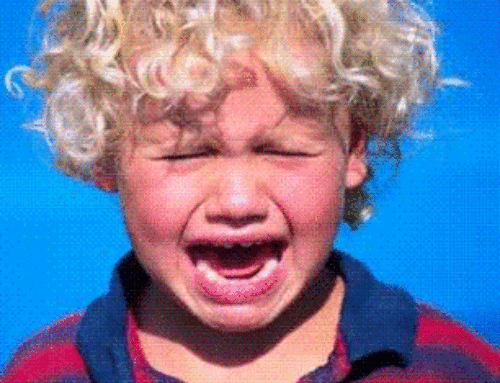All parents love their children but what if it seems that one particular child is more favoured.
Why does this sometimes transpire and why do we compare our kids?
Often, we may have a child who is particularly like us. They may have the same interests, similar personality, care about the same things we do plus they may be very interested in what we do, how we do it and what we think. All this connects us to that child.
We may have a child with particular interests like we had as a younger person. Perhaps we were unable to succeed to the level we wished and now our child is displaying abilities beyond what our capabilities were, meaning they may actually acquire the success we were not able to obtain.
We could have a child with special needs who requires us more than the other children do. Maybe we have a child that has experienced a trauma and needs some special TLC, so we nurture them closer for a while, perhaps a long while.
There are so many reasons some parents may seem to favour a child. The reasons may be valid and there is nothing particularly wrong with this – unless, the other child or children are not receiving similar positive attention.
This is nothing new; it has happened throughout most every generation. With social media, we seem to be more aware of what other parents are sharing about their kids. The announcements and the bragging are more noted nowadays via multiple platforms.
Parents usually feel their child is a reflection of them self. They want their child to succeed, be the best, be liked, intelligent and of course very smart. This is a direct duplication of us and demonstrates how great we are to make such an incredible little person. We feel what our child feels; we share the highs, lows, joys, disappointments and successes of our child.
Parents are often favourable to a specific child for a certain reason. In fact, parents may have favourite activities or behaviours they feel connected to with a child. Diminish the guilt and embrace what you have a connection with. Each and every child is exceptional and extraordinary in so many ways, embrace that with each of your children. If others compare be proud of the fact that your child is a reflection of you, they contain those aspects of your kind, loving and caring personality, regardless if they are number one at school or sport. Trying is far more admirable than a win. Winning may feel good for a while but trying hard regardless of success builds character and strength. It is character and strength that enables a person to live a successful life, not medals or trophies.
Parents becoming over animated at Sporting Events – is this new?
We have likely all seen, or at least heard, of parents becoming animated to the stage of aggressive behaviours at kids sporting events if their child, they believe, is overseen or dismissed instead of being prioritised by the coach.
Again, this is nothing particularly new. We do expect adults to display a degree of maturity, especially around groups of children. This does occur in almost all instances, however, we unfortunately, witness displays of aggressive and infantile behaviour by some parents.
Then we have the issue of parents becoming belligerent toward each other during a game or match. Two parents arguing, being loud or obtrusive seems to always embarrass the child. Children expect all grown-ups, especially their own parents, to be a mature, intelligent individual, people to admire, look up to and model. When these types of behaviours are displayed, their world can collapse. Children become confused and question the authenticity of a parent. What then escalates the issue is if the parent blames the other person for their behaviour or reaction.
A parent’s role is to ensure they teach their child we are all responsible for our own behaviour and actions, regardless of how another may act to us.
If your child is pushed or nudged unfairly by a fellow or opposition team player, what should a parent do?
Every parent wants to protect their child from hurt and distress. In sporting games or activities, we may see another child being somewhat energetic or mean to our child.
On some occasions, the parent of the child steps in and chastises the offending child. Problem with this action is two-fold:
- The parent may not be aware if their child instigated or said something to the other child, who in turn retaliated
- It does not give the child the opportunity to stand up for them self, as this is how they learn resilience and strength
It is very challenging for a parent to stand by waiting and watching especially if their child is upset. Going up slowly when possible to ask your child what happened, comfort your child and reassure them they are ok will provide the security they need. Reacting in an angry matter toward a child for behaving silly or mean is usually asking for problems.
Can you imagine how a young child reacts to witnessing a grown up, let alone a parent, behaving in such a diabolically ridiculous manner? It is embarrassing to them. The child is often humiliated. A parent should model and teach their child how to manage challenging situations, so regrettable some children fail to learn this valuable lesson.
How do we know our child may be embarrassed by our behaviour?
Depending on the age of your child depends on how they react. This being said, regardless of the child’s age, they are always embarrassed and often mortified at any parent’s outrageous behaviour where they have lost control of them self and their actions. A child may demonstrate their regret in a parent’s conduct by:
- Leaving the area and disappearing from view of others
- Becoming distressed, crying
- Getting angry and yelling at the parent to stop or be quiet
- Remaining in their room to angry or upset to speak to you
- Not wanting you to attend their activity
- Wanting to pull out of their activity for fear of any future occurrence
What if siblings show jealousy toward another?
Most siblings demonstrate some rivalry. The oldest child wants to be the best, smartest, do things first, be the role model for their younger siblings. The next child strives to live up to the accomplishments of their older sibling. This can create competitiveness.
Combine this with the desire for the attention of the parents. Many children have a strong need to ensure their parents think they are the best, great, fantastic. They love their attention and praise. They are yet to understand a parent may be hugely proud of them merely by being a wonderful, considerate and kind person. They often see other parents demonstrate pride in accomplishments of their children; they hear conversations about other people or children and want to ensure their parent thinks they are amazing.
Rest assured, your kids can feel great because of you
Parents can ensure all children feel secure within them self and loved by their parents. Spending time with your child, noticing what they do rather than what they achieve and praising them for actions rather than accomplishments all helps the child to develop into a balanced, happy secure person.
Involve them in doing things with you from when young. Things like cooking, shopping, cleaning, or any other jobs you are doing as kids love to be with you and learn from you. A child feels attached and wanted when they are asked to help their parent do something, this combined with some fun and laughter is a sure way to connect with your child. This combined with mindful behaviour toward others, patience and good example setting models honourable, guidance and appropriate behaviour.
Read more from Dr Karen
Interview on Radio 2UE discussing this with Tim Wedster and Dee Dee






